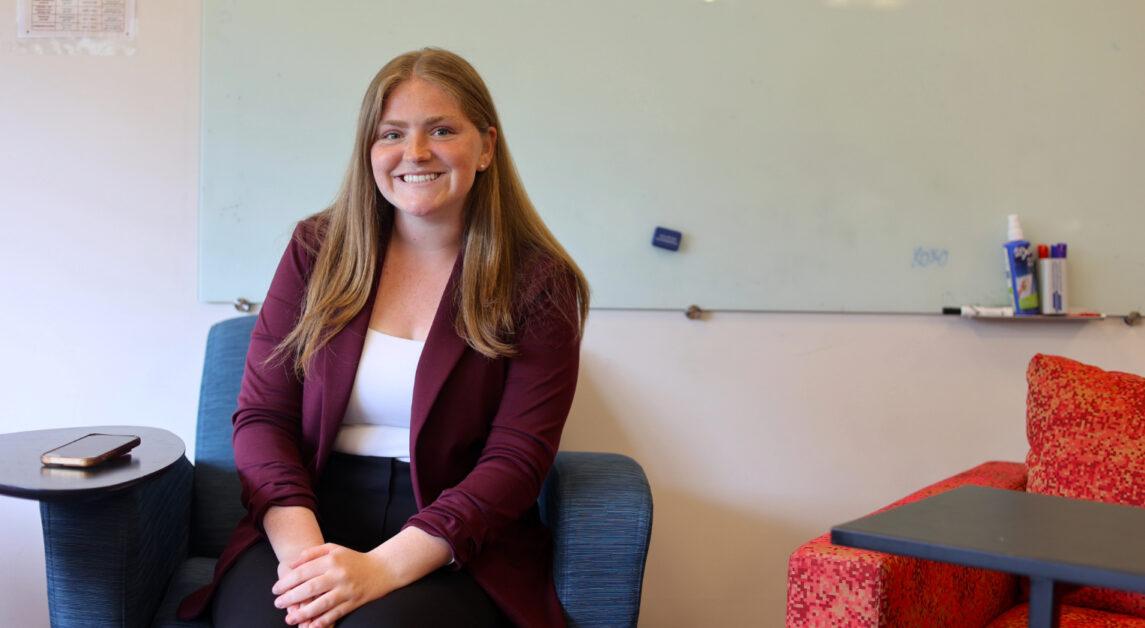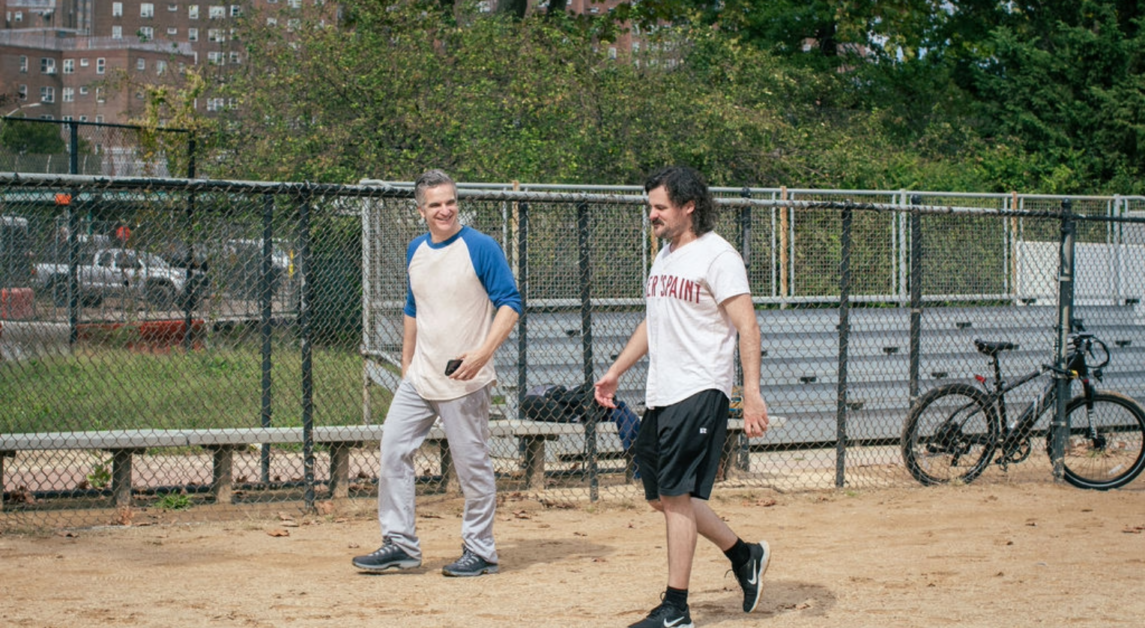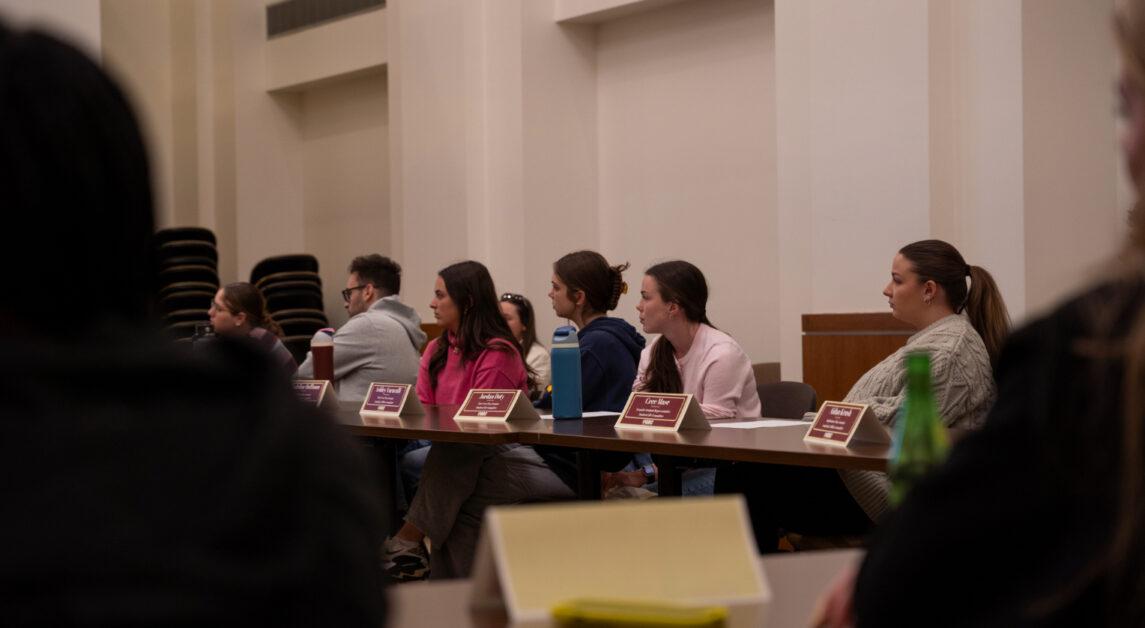The third floor of Voute Hall offers a combination of four-person apartments and large common areas for residents committed to speaking the same target language, either French or Spanish. Like other spaces on campus, each apartment has two bedrooms, a kitchen, a living room, and a bathroom.
La Casa Hispanica enables approximately 20 students interested in the Spanish language and culture to live together, and provides residents with the close personal guidance of a native-speaking graduate student. Laura Mir, the graduate student resident for La Casa Hispanica and GMCAS ’16, lives in one of the apartments on the floor and, in coordination with the undergraduate resident assistant, facilitates the planning and execution of activities designed to improve students’ language skills, enrich their knowledge of the Spanish culture, and generally contribute to their intellectual and personal development. Mir is responsible for the linguistic and intellectual functions of the program, and as such is available to the students as needed.
La Casa Hispanica’s mission statement is: learning a language through the culture. Residents commit to speaking Spanish on the floor and take an active part in the planning and execution of activities, many of which they design themselves. Students take an active role in house events throughout the year, planning at least one occasion and attending at least two each month.
“Each month one student of La Casa has to prepare an event, which I always find enjoyable and interesting,” Mir said. “For example, this month, one of the students who is studying to become a Spanish teacher did a presentation on el dia de los muertos in Mexico.”
Various events are held in the common space of the floor, such as traditional Spanish meals, as well as in other locations on and off campus for concerts, readings, lectures, film screenings, and discussions in collaboration with classes in the romance languages and literature department.
Mir tries to integrate various department programs into La Casa’s schedule because she wants the residents to interact with other Spanish-speaking people on campus, both students and faculty.
Students are able to apply for residence in Voute Hall in the spring of their freshman, sophomore, or junior years. The application is available on the Boston College housing website and it is suggested that applicants have at least moderate proficiency in Spanish. While native speakers are considered for the program, preference is given to non-native speakers. Interested candidates are strongly encouraged to participate in La Casa’s activities open to the public during the year before they apply. In order to complete their application, students must be interviewed by the graduate fellow-in-residence, which is Mir for La Casa Hispanica, and final selection is made before the start of the routine housing lottery.
“Grades are important and the student’s level of Spanish is important, because you have to know the minimum if you’re ever going to speak in Spanish with your roommate, but the most important thing for me is someone’s attitude,” she said. “For example, if someone tells me I want to live abroad in Spain, it is first a good opportunity to live in La Casa Hispanica because we are like the ‘abroad’ inside of the college. If you want to work hard and you want to be in contact with me then we can work it out.”
According to Mir, La Casa Hispanica is generally composed of two types of students—native speakers who do not want to lose their ability to converse in the language and want to feel more involved in the Latin American community at BC—and intermediate level Spanish students who are interested in furthering their studies and may want to live abroad in the future. “Normally I prefer juniors and seniors because they are more integrated in the school and they are more set up and Voute is mostly senior housing,” Mir said.
Mir said the feedback she has received from students is that they really like La Casa because it feels like a family. It’s tricky because usually in their third or fourth year students live with their friends and in La Casa, students have to live with somebody who wants to be a part of this community, she said. However, Mir encourages students to apply for this unique opportunity because, in her experience, it’s a very accepting and nurturing atmosphere.
Francisco Seco / AP Photo













